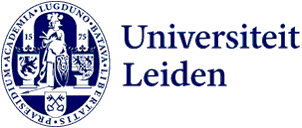
Hans-Martien ten Napel participates in The International Forum on the Future of Constitutionalism Global Summit
The Global Summit, which took place from 12-16 January 2021, is an initiative by Richard Albert, the William Stamps Farish Professor in Law, Professor of Government, Director of Constitutional Studies at the University of Texas at Austin, and Founder & Director of the International Forum on the Future of Constitutionalism.
Plenary speakers included Erin Delaney, Jack Balkin, Rosalind Dixon, Tom Ginsburg, and Ran Hirschl.
Hans-Martien spoke during panel 81 on “The Future of Constitutional Support for Religious Institutional Autonomy: Comparative Perspectives,” organized by Alex Deagon, Senior Lecturer, Queensland University of Technology, Australia and author of From Violence to Peace: Theology, Law and Community (2019).
Other speakers on the same panel were Iain Benson of the University of Notre Dame Australia, one of the drafters of the South African Charter of Religious Rights and Freedoms, Janet Epp Buckingham, Professor of Political Studies and History at Trinity Western University, Ottawa, ON, and Augusto Zimmermann, Dean and Professor of Law at the Sheridan Institute of Higher Education, Perth, and an expert on his country of birth Brazil.
The title of Hans-Martien’s presentation was: “The European Courts and Religious Groups.” His paper consisted of three points. He started by saying something in general about the model of constitutional or fundamental rights as it has taken shape in practice in Europe in recent decades. This model provides a clear contrast to American thinking on constitutional rights. He demonstrated this through a book by the legal scholar Kai Möller, currently affiliated with the London School of Economics and Political Science.
He then turned to whether, and if so, to what extent, this model is also more specifically applicable to the topic of the panel, namely religious institutional autonomy. For this, he drew on the book by Joel Harrison of the University of Sydney Law School, published last year, titled Post-Liberal Religious Liberty.
Finally, he addressed a current court ruling, namely that of the Court of Justice of the European Union, on a ban on ritual slaughter. As he argued, this issue goes to the heart of the substantive religious institutional autonomy dimension. Simultaneously, the ruling illustrates the fragile balance that prevails in Europe regarding constitutional support for it.
See for more information on the Global Summit, which attracted 4000 total attendees: https://law.utexas.edu/the-global-summit/.
